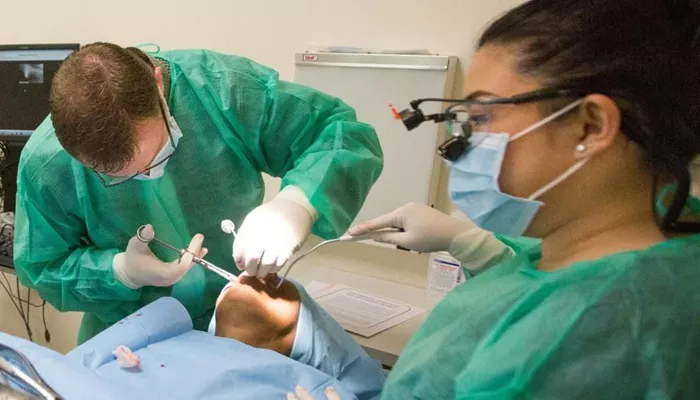A recent study published in the Journal of Dentistry suggests that somatosensory alterations following dental implant surgery may decrease significantly within one year. This cohort study aimed to evaluate the incidence of these sensory changes using standardized quantitative and qualitative sensory testing.
The study involved 33 participants who experienced single-tooth loss and underwent immediate implant loading.
Researchers conducted Quantitative Sensory Testing (QST) and Qualitative Sensory Testing (QualST) at eight different time points over the course of one year, from baseline to one year post-surgery. The data were analyzed using Two-Way Repeated Measures ANOVA and post hoc Tukey tests for QST values, while Cochran Q tests were applied for QualST results.
Key Findings
The study revealed a significant increase in thermal thresholds over time. Specifically, at the operated site, the overall Cold Pain Threshold showed notable increases, with extraoral results at p=0.030 and intraoral results at p<0.001. Additionally, the Cold Detection Threshold also increased significantly, with intraoral results at p<0.001.
In the contralateral region, the maxilla exhibited increases in Cold Detection Threshold (extraoral: p=0.024; intraoral: p=0.031), Warm Detection Threshold (extraoral: p=0.026; intraoral: p=0.047), and overall Cold Pain Threshold (both extraoral and intraoral: p<0.001). QualST indicated abnormalities in sensory responses, including extraoral pinprick (p=0.032) and intraoral pinprick (p=0.000), as well as cold (p=0.000) and touch (p=0.002) stimuli over time.
Conclusion
The study concluded that somatosensory alterations were present in both quantitative and qualitative assessments following implant surgery. However, these alterations decreased rapidly during the initial follow-ups and continued to decline until the one-year mark. This research provides valuable clinical evidence regarding the effects of somatosensory changes over time, enhancing the understanding of neurosensory behavior after single-tooth dental implant rehabilitation.
The findings highlight the importance of monitoring sensory changes in patients following dental implant procedures, as well as the potential for recovery within the first year post-surgery.

